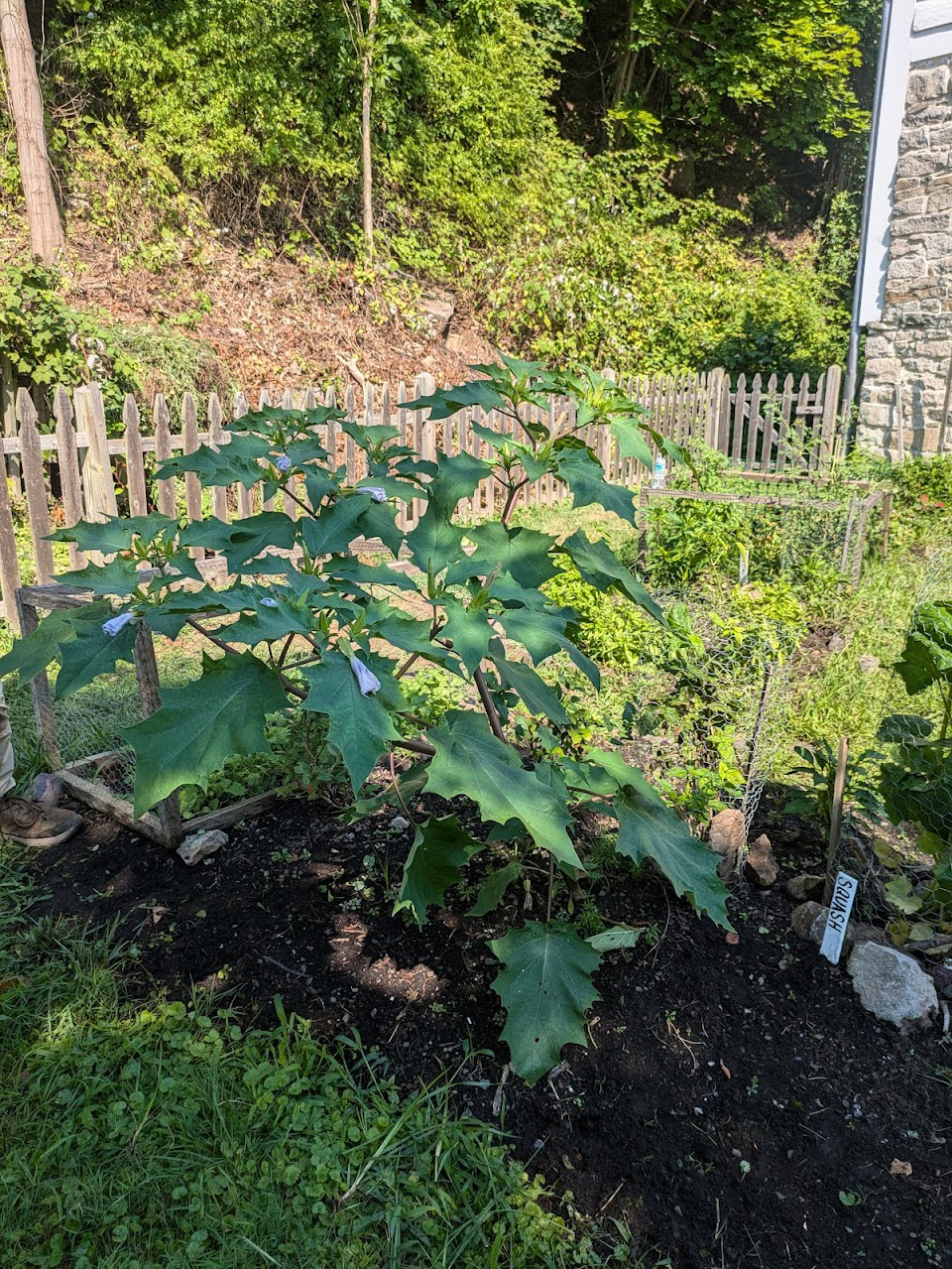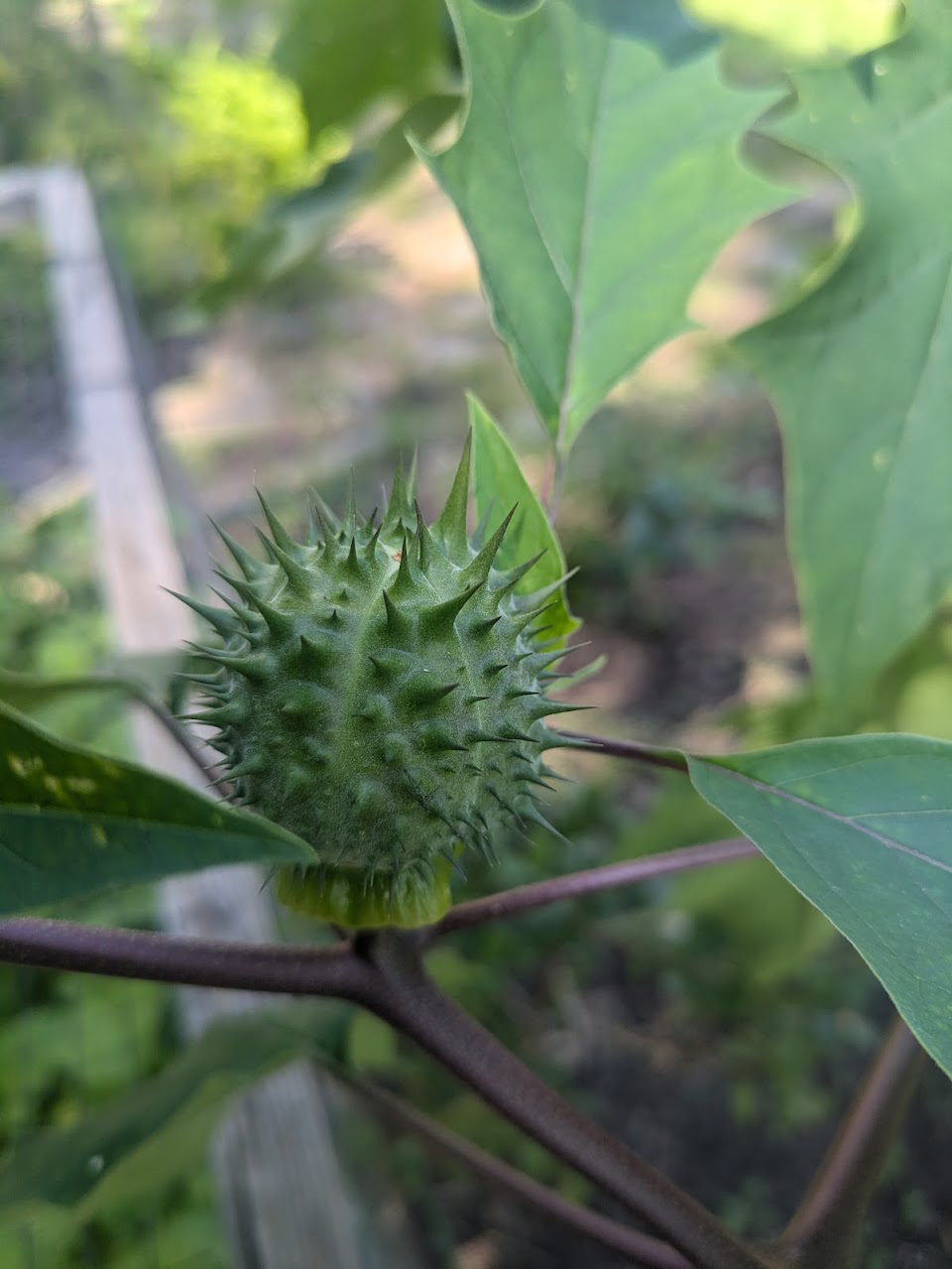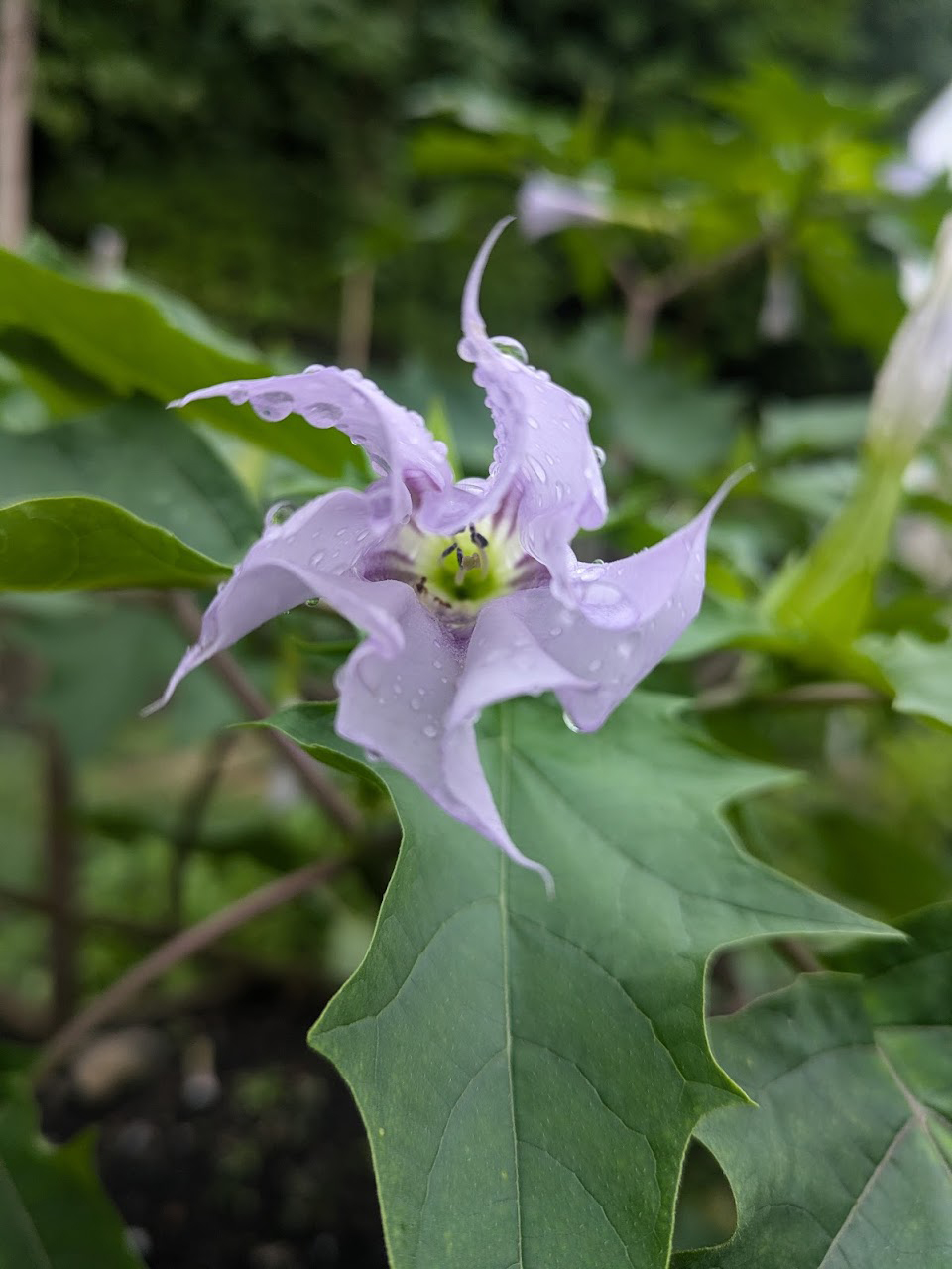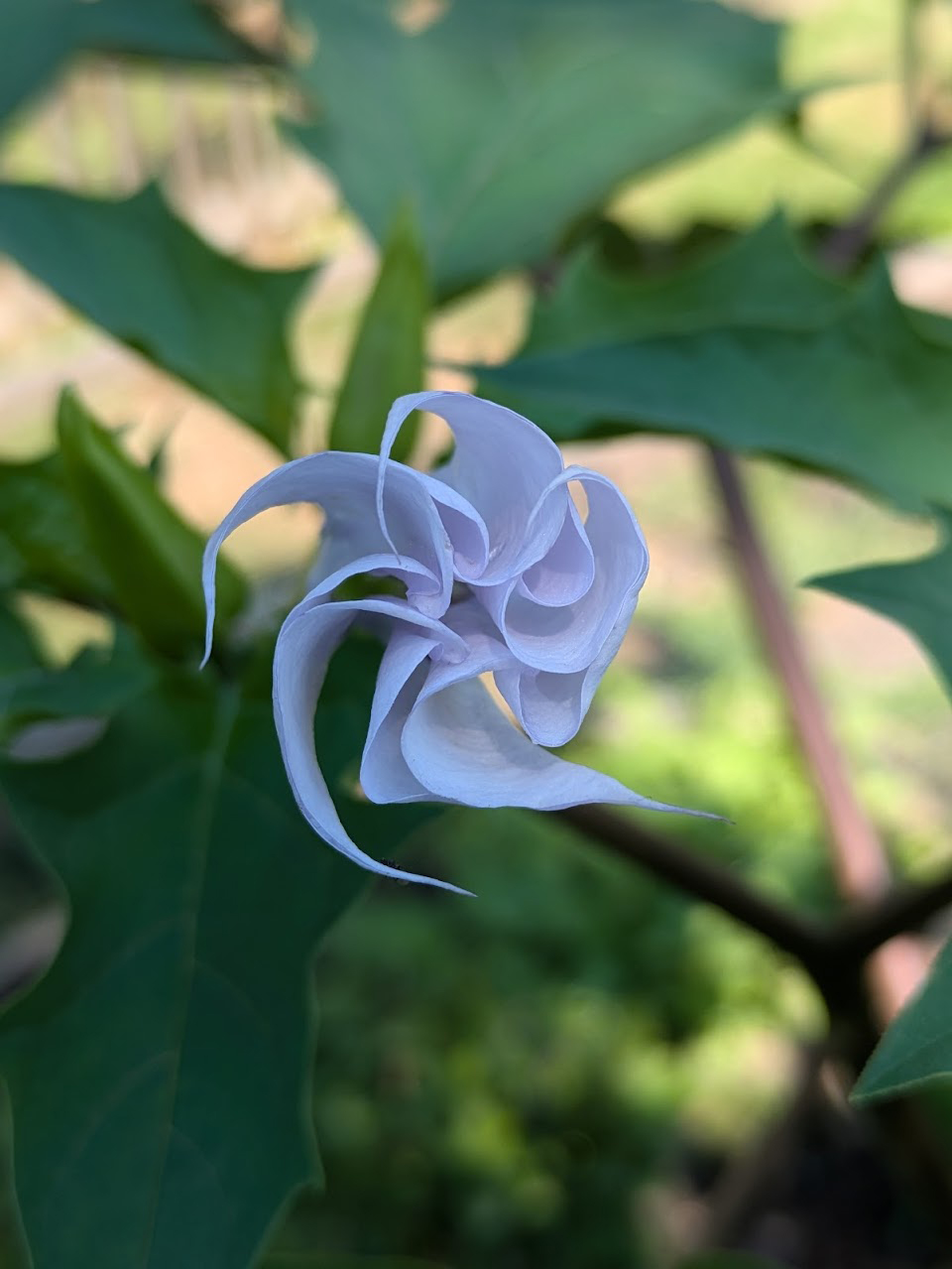An Uninvited Guest
A “Cliff Notes” Story
January 2025
One morning in early August, my fellow Interpretive Rangers and I went down to the Kearney House in the Alpine Picnic Area to tend our historic garden. As we entered the garden, we noticed that squeezed between the squash and raspberry bush was a new plant that seemingly sprouted overnight. It had dark purple roots with large leaves that easily blocked sunlight. We were concerned that it would choke out the surrounding plants, but we were curious about its purple and white star-shaped flowers and green, spiky fruits. We didn’t know it at the time, but we were looking at a plant known as jimson weed.

Datura stramonium, or jimson weed, originated in Central America, but has found a new home further north. The name “Jimson” was derived from “Jamestown,” after it was encountered by early colonists there. Other common names for jimson weed are “devil’s trumpet” and “moonflower,” because of its unusual flowers. It is in the classification Solanaceae, the nightshade family. Famous relatives in the same genetic group include eggplants, potatoes, and tomatoes. Unlike these common sights on a dinner plate, jimson weed is very poisonous, more akin to its cousins nightshade and belladonna. Another relative of jimson weed would go on to become a staple crop of the Virginia Colony: Tobacco.
We aren’t the first ones to stumble upon jimson weed near a garden. In fact during Bacon’s Rebellion seven unlucky British soldiers reportedly mistook it for an edible plant! Robert Beverley later wrote in his 1705 The History of Virginia in Four Parts:
The Jamestown Weed… was gathered very young for a boiled salad by some of the soldiers sent thither to quell the rebellion of Bacon; and some of them eat plentifully of it, the effect of which was a very pleasant comedy; for they turned natural fools upon it for several days: one would blow up a feather in the air; another would dart straws at it with much fury; and another stark naked was sitting up in the corner, like a monkey, grinning and making mows at them; a fourth would fondly kiss and paw his companions, and snear [sic] in their faces, with a countenance more antic than any in a Dutch droll. In this frantic condition they were confined, lest they should in their folly destroy themselves; though it was observed that all their actions were full of innocence and good nature. Indeed, they were not very cleanly, for they would have wallowed in their own excrements if they had not been prevented. A thousand such simple tricks they played, and after eleven days returned to themselves again, not remembering anything that had passed.
Ingesting jimson weed can cause dry mouth, extreme thirst, vision problems, nausea, vomiting, a fast heart rate, confusion, seizures, breathing problems, and even result in death. Indigenous people in Mexico have been familiar with this weed’s effects for generations, and several tribes use less-toxic parts of the plant as a hallucinogen. Although this weed can cause extreme harm, jimson weed is also used in homeopathic circles to treat asthma, cough, or the flu. No medicinal studies to this date suggest it is an effective cure, however, and the risks may outweigh any benefits.
Today, jimson weed can be found along roadsides or in disturbed habitats (such as a garden). Its flowers attract pollinators, though the rest of the plant emits a foul smell that deters animals. All in all, we found it to be more beneficial to the garden than not, so we let it grow for a while longer! It quickly grew to 5 feet, and we enjoyed watching the flowers bloom. Our raspberry bush could thrive without the burning August sun beating down, and once September rolled around we pulled out the uninvited guest.
The Center for Disease Control warns that accidental poisonings still happen every year from mistaken plant foraging. We ask all park visitors to refrain from disturbing flora and fauna within our park. Unless you are looking to spend eleven days like those British soldiers, avoid eating things you cannot identify. Like most wild plants, jimson weed is harmless… until you throw it in your cooking pot!
– Imari Tirado & Francesca Costa –




